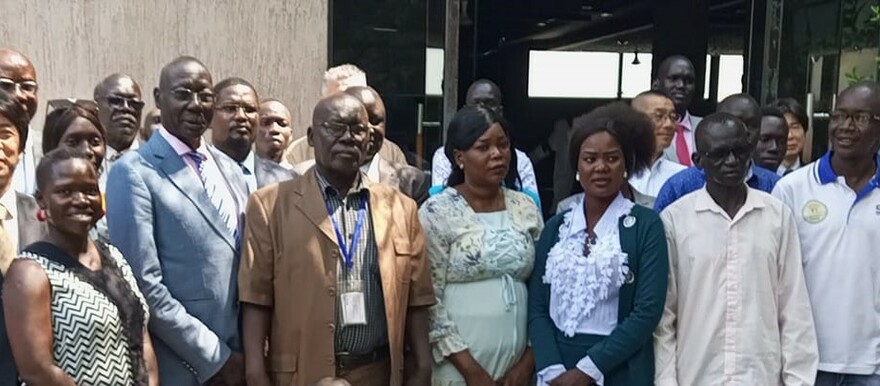The Japan International Cooperation Agency (JICA), in collaboration with UNESCO and the Access to Information Commission, kicked off a two-day access to information workshop in Juba on Tuesday.
The aim is to enhance access to information nationwide in preparation for the upcoming elections in December 2024. Participants include members of the media, civil society, the National Elections Commission, and representatives from various government and electoral bodies.
A delegation from the Japanese government, comprising the Japan Senior Advisor for Electoral Management, Senior Advisor for Media, and Director for Japanese Electoral System, conducted the workshop in Juba. This included the sharing of election experiences by the officials.
George Lemi Stans Yata, Commissioner for the National Election Commission and Spokesperson of NEC, highlighted that the commission has established a media and public relations department to facilitate access to information during the electoral process in the country.
“The National Elections Commission believes that access to information is crucial for successful electoral processes, aligning with its mandate to ensure integrity, transparency, and impartiality,” he emphasized.
Furthermore, Lemi mentioned, “For effective access to information, the National Elections Commission has set up the Department of Information and Public Relations, as well as the Media and the Department of Civic and Voter Education under the Directorate of Outreach within the commission.”
For his part, UNESCO Country Representative Julius Banda emphasized the need to enhance access to information across all institutions in South Sudan to empower voters and the public to make well-informed decisions during elections. “Access to information plays a pivotal role in the electoral process, serving as a foundation for fostering democracy,” he stated.
Banda stressed the importance of voters having access to accurate and unbiased information to make informed choices during elections. He highlighted that media coverage, political debates, and online platforms are essential channels for providing information about candidates, their stances, and related issues.
He added, “The right to access information is crucial because it underpins various human rights, including the right to participate in government directly or through freely chosen representatives.”
Banda argued that access to information is particularly vital in the context of South Sudan, urging line ministries to be readily available to provide information when necessary.
Meanwhile, Moyiga Nduru, Commissioner of the Access to Information Commission in South Sudan, underscored the importance of the public comprehending the entirety of election content. “With every new event like elections, there are associated complexities. How can we effectively communicate these messages to ensure people understand?” he questioned.
Dr. Yath Awan Yath, Undersecretary for the South Sudan Ministry of Information, stressed the importance of JICA and all partners obtaining details of all media outlets across South Sudan to facilitate the dissemination of information regarding the upcoming elections.
“This seminar is timely as the government plans to hold elections by the end of 2024. A task force comprising the AU, UNMISS, and IGAD has already been formed to address issues leading up to the elections,” he explained. “By connecting all radio stations and other media outlets nationwide, we can effectively share information about the elections.”
Referring to the National Election Act 2012, as amended in 2023, Section 6/27, he stated, “According to this act, the National Election Commission is mandated to inform the public about its activities, the formation of electoral constituencies, polling stations and their locations, operating hours, voter registration, political parties, candidates’ participation in elections, as well as providing information about voting procedures and election results.”




